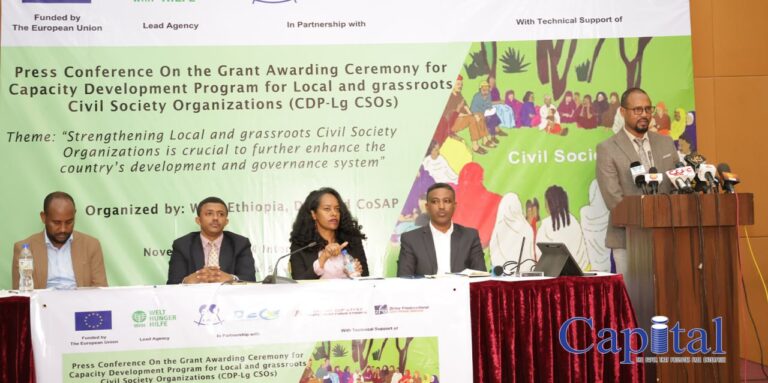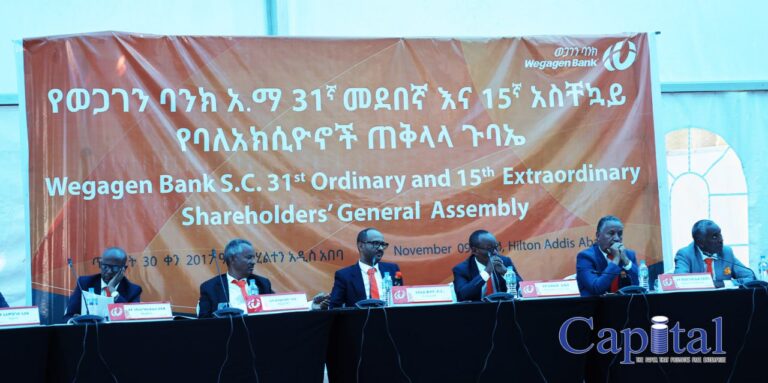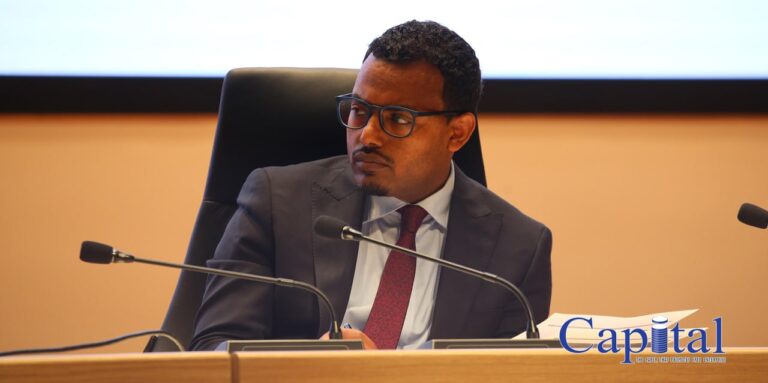The National Bank of Ethiopia (NBE), the regulatory authority for the financial industry, has issued a warning to financial institutions and businesses involved in illicit activities related to the foreign exchange market. NBE supervisors have conducted on-site investigations into the foreign currency operations and management of every bank.
Recent macroeconomic reforms have enabled the country to increase its foreign exchange reserves over the last quarter of the year, facilitating the repatriation of profits by international corporations and airlines.
Significant changes were implemented as part of the macroeconomic reform initiated on July 29. These changes included the establishment of a free foreign exchange market and modifications to how the banking sector manages foreign exchange. Notably, citizens are now allowed to open foreign exchange accounts, and new forex bureaus have been established.
NBE Governor Mamo Esmelealem Mihretu reported that the reform has yielded positive and encouraging outcomes in its initial quarter. In an interview with Fana TV, he highlighted several new statistics and developments since the reform’s inception.
For the first time in the nation’s history, the balance of payments recorded a surplus. “The balance of payments showed a USD 573 million surplus, compared to a USD 1.2 billion deficit the previous year,” he stated.
Mamo noted that the government has launched various initiatives aimed at achieving significant results from the new macroeconomic reform. He pointed out that prior to the reform, the gap between the official exchange rate and the parallel market was nearly double. Currently, since the reform began, the difference between the official and black market rates has been between three and five percent, with the overall exchange rate difference now being less than ten percent.
“Since the start of the reform, the exchange rate has fluctuated, but we understand the reasons behind these changes,” the governor explained. He expressed optimism that the gap between the official and parallel markets will narrow and eventually converge.
Mamo is confident that the rate will converge soon, utilizing the tools provided by the government. He emphasized the role of banks in closing the gap with the illegal rate. He justified the need for banks to distribute foreign cash to their clients in accordance with the law and regulations, free from unnecessary restrictions.
Mamo stressed that the NBE reform replaced the outdated and ineffective system, which was vulnerable to criminal activities, with a simpler and more dynamic approach. “Unhealthy activities are being observed at certain banks,” he stated, affirming that the NBE will address any bank officials who continue to engage in unlawful practices.
He mentioned that NBE officials have been investigating all banks on-site over the past two weeks regarding foreign exchange operations, policies, and other relevant matters. “We will take legal action based on the investigative report that has already been completed and submitted for decision,” he added.
He underscored the critical role banks play in aligning the exchange rate closer to parity. “Those who benefited from the previous system may attempt to obstruct our efforts, as we work to reform this deeply entrenched system,” he acknowledged.
Mamo concluded by conveying his desire for the public to understand that NBE and the government have made significant strides to improve foreign currency administration.
He highlighted the government’s decision to allow unofficial hawala players to establish legitimate currency bureaus, a move that would legally benefit them, as part of the reform actions.
He stated that the government has made it easier for individuals involved in domestic and international money transfers to access the legal system, emphasizing that “there is no way to engage in illegal activity.”
He noted that banks, in collaboration with the NBE-led campaign, have provided more incentives for both consumers and money transfer providers.
“Those who attempt to access foreign currency through illegal means jeopardize their businesses,” Mamo stressed, emphasizing that banks should supply funds to investors or importers in need of foreign currency.
He cautioned, “Our goal is to ensure the reform is successful, so we can take corrective action.”
Mamo assured that new technology in the financial regulatory system will be employed to monitor trade and financial activities.
He remarked that the system will effectively track financial transactions, stating, “We are equipped with new technology that facilitates our regulation.”
Capital has learned that during a recent trip to the United States, a delegation including Finance Minister Ahmed Shide, Mamo, and representatives from commercial banks met with money transfer companies focused on the Ethiopian market.
According to sources, the government has urged remittance providers to comply with the law or face legal repercussions under Ethiopian law, especially in relation to its diplomatic ties with North America, where the largest Ethiopian diaspora resides.
Sources informed Capital that the government has previously conducted thorough investigations into remittance businesses, particularly those based in the U.S. that are largely operated by the Ethiopian or East African diaspora involved in illicit money transfer activities.
In his latest briefing on the reform’s progress, Mamo advised travelers to use independent foreign exchange bureaus for small-value transactions (up to USD 10,000) as an additional option.
Experts in the international banking divisions (IBD) of commercial banks have noted that some bankers are still considering conducting business in the traditional manner.
One head of a commercial bank’s IBD, who requested anonymity, told Capital, “I can say that there are some banking staff looking for loopholes to benefit themselves.”
He expressed hope that the central bank would take action to rectify these issues.
According to Mamo’s latest data, commercial banks have generated USD 1.2 billion from exports of goods and services since the reform began and have sold USD 1.7 billion worth of foreign currency in just three months.
Mamo noted that the amount they are acquiring continues to grow daily.
“The size of the forex reserve in the banking system is a strong indicator that the reform is progressing well,” Mamo stated.
The reserve at the NBE, which was USD 1.4 billion on July 29, has increased to USD 3.4 billion within three months.
Additionally, the reserves of commercial banks have risen from USD 1.7 billion to USD 2.4 billion in the same period.
Banks now have nearly zero net open positions (NOP) due to USD 518 million in existing or legacy letters of credit (LCs) settled during the reform period.
The governor remarked, “Now they can focus on new LCs,” noting that a USD 100 million transaction was part of the interbank FX trade that commenced a few weeks ago.
The International Monetary Fund, in its latest assessment report, revealed that private banks have significantly reduced their NOP, with many now maintaining balanced or modestly long positions.
According to Mamo, international corporations, including airlines, have successfully repatriated their profits to their home countries during recent reform periods.
However, due to a scarcity of hard currency, there have been allegations that foreign direct investments (FDIs) and airlines selling tickets in Ethiopia are unable to access their foreign exchange profits to remit back to their home countries.








